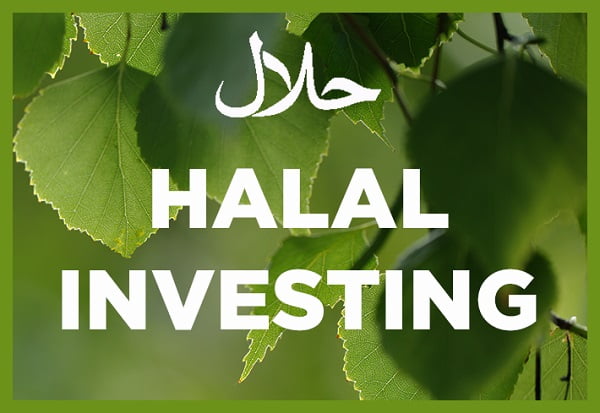Financial Freedom in India through Halal Investment: Independence from the rat race, Ethical Mutual Funds, Halal Stocks, Halal Real Estate Investments
Introduction
In recent years, the concept of financial freedom has gained significant traction among individuals seeking a path to economic independence and stability. Independence from the rat race is the capacity to decide and live serenely without being compelled by monetary restrictions. In India, where a significant portion of the population follows Islamic principles, halal investment has emerged as a popular avenue for achieving financial freedom while adhering to ethical and Sharia-compliant practices. This article delves into the world of halal investments and explores how it enables individuals in India to work towards financial independence.

What is Halal Investment?
Halal investment refers to investments that are compliant with Islamic principles and Sharia law. These investments avoid certain activities prohibited by Islam, such as interest-based transactions, gambling, and investing in businesses that deal with alcohol, pork, or other haram (forbidden) activities. Instead, halal investments focus on ethical businesses, real assets, and industries that align with Islamic values.
Key Principles of Halal Investment
- Prohibition of Riba (Interest): One of the fundamental principles of halal investment is the avoidance of riba or interest. Islam prohibits earning or paying interest as it is seen as exploitative and unjust.
- Avoidance of Haram Activities: Halal investments exclude any involvement in industries deemed haram, such as alcohol, gambling, or usurious financial services.
- Shared Risk and Profit: Halal investment emphasizes the sharing of risk and profit between the investor and the entrepreneur. Both parties participate in the outcomes of the investment.
- Ethical Business Practices: Investments must be made in companies that adhere to ethical and moral practices, promoting social responsibility and fairness.
The Growing Popularity of Halal Investment in India
A Rising Awareness
As more individuals seek to align their financial decisions with their religious beliefs, the awareness and demand for halal investment options have grown significantly in India. Muslims in the country are actively seeking opportunities that allow them to invest their money responsibly and in compliance with Sharia law.

Diverse Investment Avenues
Halal investment in India offers a diverse range of opportunities. Some of the popular halal investment avenues include:
- Ethical Mutual Funds: These funds invest in a portfolio of Sharia-compliant stocks and financial instruments, providing investors with a diversified and ethical approach to wealth creation.
- Real Estate Investments: Investment in real estate, particularly residential properties, is considered halal as it involves tangible assets and does not involve interest-based transactions.
- Halal Stocks: Investors can participate in the stock market by investing in companies that meet Islamic principles, ensuring their investment aligns with their values
- Venture Capital Funding for Halal Startups: India’s startup ecosystem is vibrant and diverse, with many innovative businesses adhering to halal principles. Investing in halal startups through venture capital funding not only provides potential financial rewards but also supports ethical entrepreneurship.
- Islamic bonds: it also know as sukuk, provide investors with fixed-income opportunities that comply with Sharia principles. Indian investors can explore Sukuk investments to diversify their portfolios while avoiding interest-based financial instrument
Building a Path to Financial Freedom
Halal investment not only allows individuals to follow their religious beliefs but also presents an effective path towards financial freedom. Here’s how halal investment can contribute to achieving financial independence in India:
a. Set Clear Financial Goals
Define your financial objectives, including short-term and long-term goals. Having clarity on what you want to achieve will help you strategize your investments effectively.
b. Educate Yourself on Halal Investment
Take the time to educate yourself about halal investment principles, various investment options, and their potential risks and returns. Information is an integral asset in going with informed speculation decisions
c. Seek Professional Guidance
Consult with financial advisors or experts who specialize in halal investments. Their expertise can provide valuable insights and help you build a diversified investment portfolio.
d. Diversify Your Portfolio
Diversification is key to mitigating risks in your investment journey. Allocate your funds across different asset classes to reduce exposure to any single investment’s volatility.
e. Regularly Review and Adjust
As with any investment strategy, it’s essential to regularly review the performance of your portfolio and make adjustments when necessary. Market conditions and personal circumstances may warrant changes to your investment allocations
Conclusion
Financial freedom in India through halal investment is an empowering concept that allows individuals to achieve their financial goals while remaining true to their religious beliefs. By embracing halal investment opportunities, individuals can work towards economic independence, preserve their values, and contribute positively to society. The growing popularity of halal investments in India signifies a promising future, where ethical and responsible financial practices lead the way towards prosperity and financial freedom.
FAQs
Q1: Can halal investments outperform conventional investments?
Ans: Yes, halal investments have demonstrated strong performance in various markets. The emphasis on ethical and sustainable businesses can provide opportunities for long-term growth and stability.
Q2: Are there specific halal investment funds in India?
Ans: Yes, several financial institutions offer Islamic mutual funds and investment products that adhere to halal principles. These funds invest in Sharia-compliant assets and businesses.
Q3: Is real estate investment the only halal option in India?
Ans: No, while real estate is a popular halal investment avenue, there are various other options, including halal stocks, Islamic bonds (sukuk), and other ethical investment products.
Q4: How can I start with halal investing in India?
Ans: To begin with halal investing, it is advisable to consult a financial advisor or an institution that specializes in Sharia-compliant investments. They can guide you through the available options and help create a portfolio that aligns with your financial goals and ethical principles.

Thanks for the information
My pleasure..